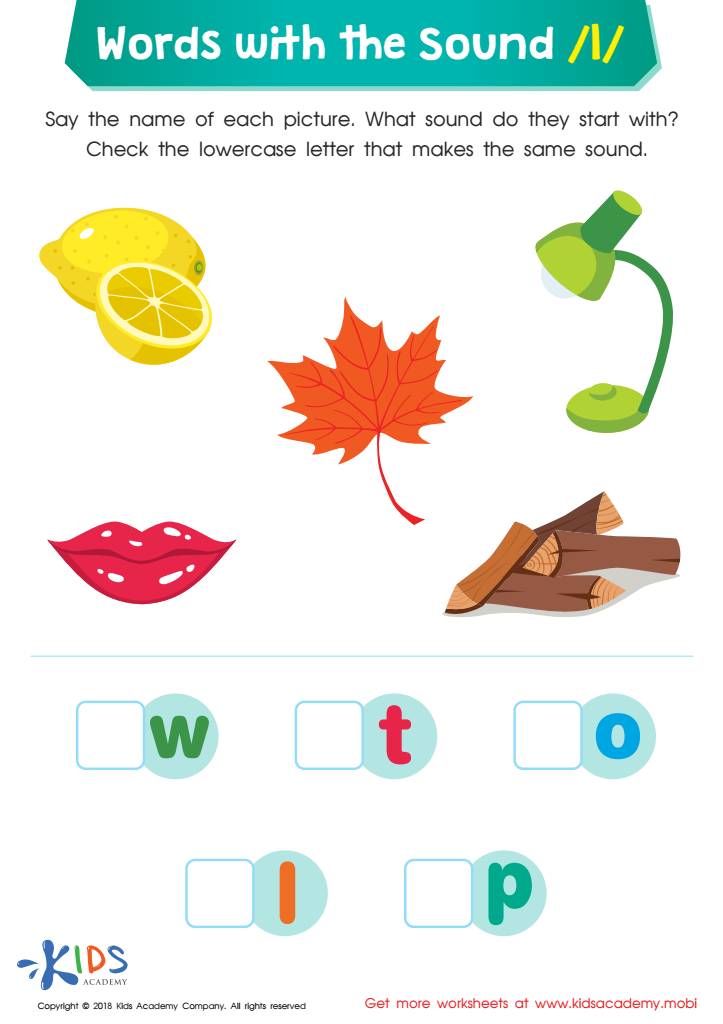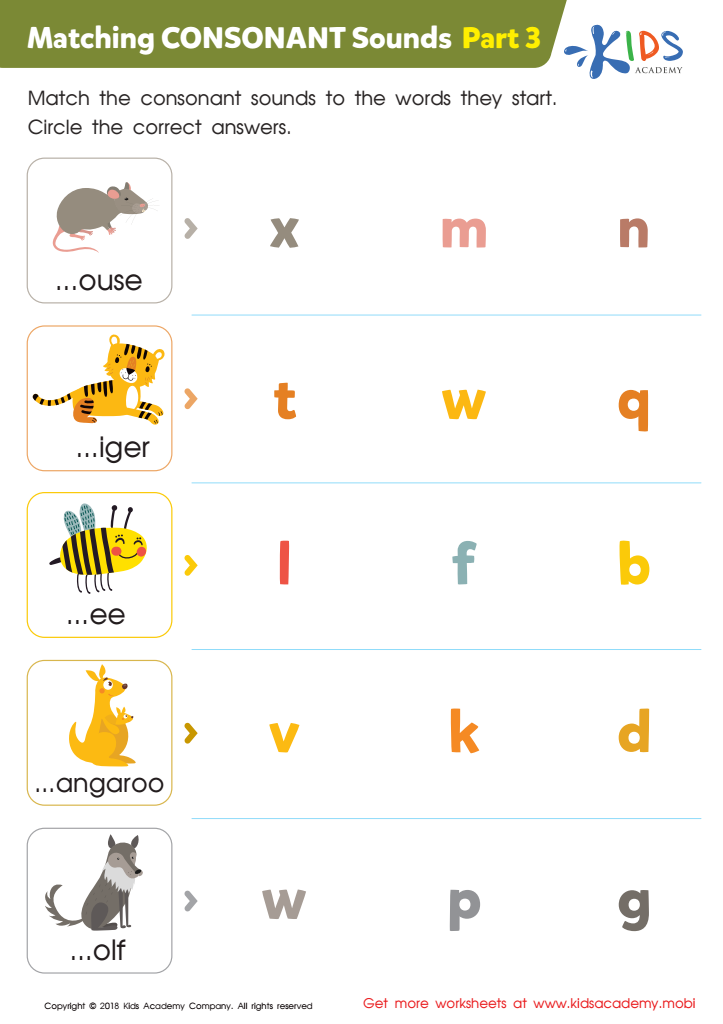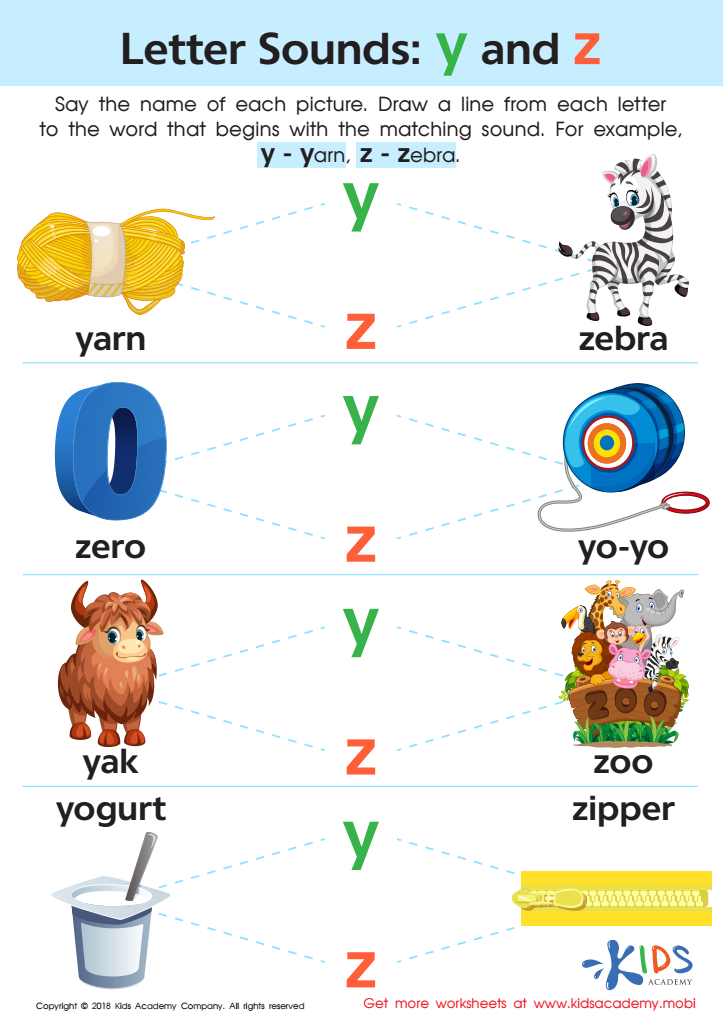Letter-sound association Phonics Worksheets for 5-Year-Olds
3 filtered results
-
From - To
Discover our comprehensive collection of letter-sound association phonics worksheets tailored for 5-year-olds! These engaging activities are designed to help young learners master the crucial skill of connecting letters with their corresponding sounds. Our printable worksheets provide a fun and interactive way to enhance phonemic awareness, essential for early literacy development. With vibrant illustrations and playful exercises, children will enjoy identifying sounds and matching them to the right letters. Ideal for classroom use or homeschooling, these worksheets support diverse learning styles and promote confidence in reading. Start your child’s phonics journey today and watch their literacy skills flourish!


Words with Sound L Reading Worksheet


Matching Consonant Sounds: Part 3 Worksheet


Letter Y and Z Sounds Worksheet
Letter-sound association, or phonics, is a crucial building block in early literacy for 5-year-olds. Understanding this concept allows children to decipher words effectively, fostering reading fluency and comprehension. When children learn the relationship between letters and their corresponding sounds, they become empowered to decode unfamiliar words. This skill marks the transition from being a passive listener to an active reader, guiding their journey into independent reading.
Parents and teachers should care about phonics because early literacy lays the foundation for overall academic success. Children who grasp letter-sound associations are more likely to excel in reading, which enhances their learning across all subjects, from math to science. Moreover, reading proficiency boosts self-esteem and cultivates a lifelong love for literature.
Early phonics instruction can also help identify and support children with learning difficulties, allowing for timely intervention. Engaging with phonics through playful, interactive activities nurtures a child's curiosity and makes learning enjoyable. As home and school environments work together to emphasize phonics, children are more likely to thrive, enabling them to become confident communicators and avid readers, which benefits their future educational pursuits and social development. Therefore, prioritizing phonics is an investment in a child's academic and personal growth.

 Assign to My Students
Assign to My Students















